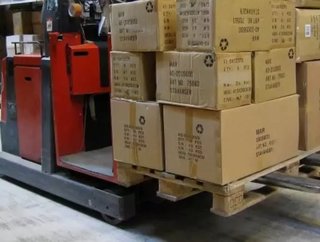NHS invests in supplier packaging to increase trailer fill

NHS Supply Chain has taken a unique path to optimising its product supply, following the successful launch of its new strategic sourcing programme, designed to reduce costs and deliver increased value across the healthcare supply chain.
With collaborative working and cost efficiency remaining key themes on the NHS agenda, the foundation stone of NHS Supply Chain’s strategic sourcing programme is working with suppliers to identify opportunities that drive efficiencies across the supply chain and deliver results. The programme will focus on a number of key areas, such as packaging optimisation to reduce costs and material waste, trailer fill to reduce product miles, and supply chain optimisation.
“The launch of the strategic sourcing programme follows a number of successful pilot programmes that have evidenced strong savings opportunities for suppliers,” explains Jonathan Kaye, Head of Strategic Sourcing at NHS Supply Chain. “For example, we recently worked with one supplier of clinical waste containers to redesign the packaging of a selection of their product range. This reduced packaging and transport costs by 63 per cent, as well as saving 46 tonnes of paper and a quarter of a tonne of plastic.
“It’s about delivering benefits across the board. Suppliers gain from the supply chain expertise within our business and the wider DHL to support the introduction of efficiencies that will help them reduce costs. In turn, this will help to ensure that NHS trusts who purchase from NHS Supply Chain framework agreements are working to meet their own strict savings targets.”
In addition to cost efficiencies, NHS Supply Chain’s strategic sourcing programme has the potential to deliver significant benefits in terms of sustainability. With the launch of the Department of Health’s consultation and engagement programme to develop a new Sustainable Development Strategy for 2014 – 20, this is in harmony with current government policy on carbon reduction.
“Maximising delivery capabilities will reduce vehicle miles and support carbon reduction targets, whilst cutting down on the amount of product packaging used, through packaging optimisation projects, will reduce the amount of material waste generated across the supply chain” continues Jonathan. “It’s about taking a holistic view of the supply chain and identifying where we can work together with suppliers to drive efficiencies that deliver benefits all around.
“The opportunity for suppliers to then replicate these improvements across other product areas and supply chain routes offers huge potential for suppliers to take the lead in driving efficiencies for customers.”






